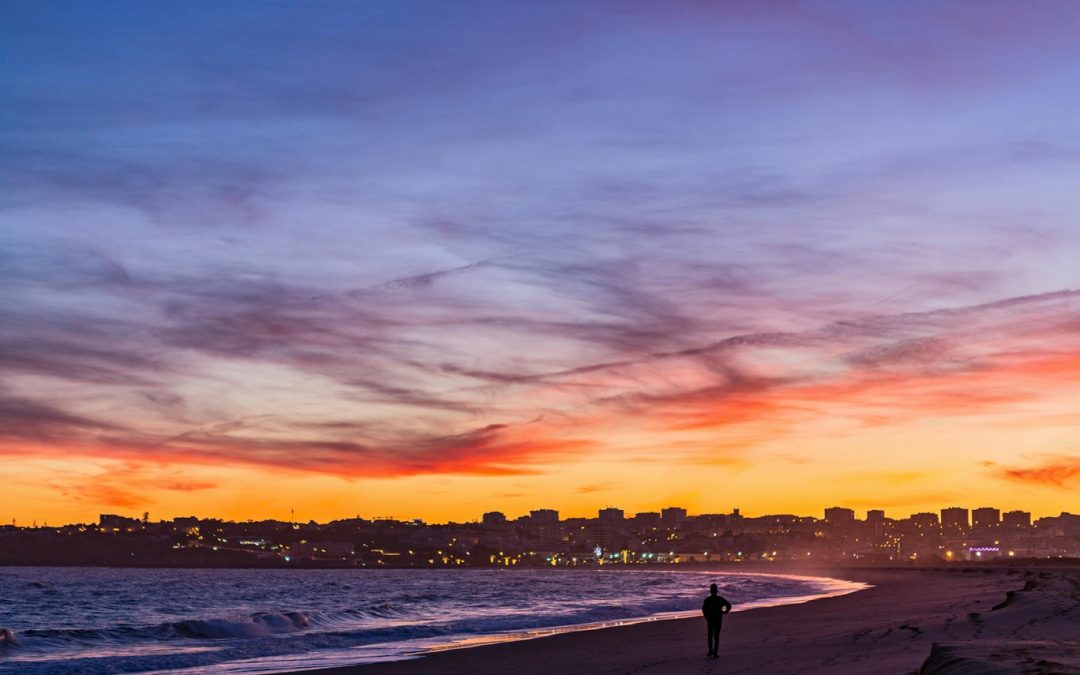Picture this: you’re sipping a velvety Port wine on your sun-drenched terrace, overlooking the azure waters of the Atlantic. This isn’t a fleeting vacation moment—it’s your new life as a property owner in Portugal.
Sounds dreamy, doesn’t it? But before you pack your bags and book a one-way ticket, let’s embark on a journey through the intricacies of buying property in this Mediterranean paradise.
The 5 Phases of Foreign Property Acquisition in Portugal
Phase 1: Research and Planning – Your Homework Begins
Before you start scrolling through listings of charming cottages and sleek apartments, it’s crucial to lay the groundwork. Did you know that, unlike some countries, Portugal welcomes foreign property buyers with open arms? That’s right—there are no restrictions on foreigners purchasing real estate here.
Pro Tip: Start by defining your “why.” Are you looking for a vacation home, a retirement nest, or an investment property? Your purpose will guide every decision moving forward.
Action Items:
- Research visa requirements (Hint: The Golden Visa program is worth exploring!)
- Familiarize yourself with Portuguese real estate terms
- Set a realistic budget, factoring in additional costs like taxes and legal fees
Phase 2: The Hunt – Finding Your Portuguese Dream Home
Now comes the fun part—house hunting! But hold your horses; this isn’t like browsing through IKEA. The Portuguese property market has its quirks.
Did You Know? In Portugal, property sizes are often listed in square meters, not square feet. Quick conversion: 1 square meter = 10.764 square feet.
Your Best Bet: Partner with a reputable, English-speaking real estate agent. They’ll be your local eyes and ears, helping you navigate everything from price negotiations to deciphering property descriptions.
Phase 3: Legal Matters – Dotting the I’s and Crossing the T’s
You’ve found “the one,” but before you sign on the dotted line, it’s time to get legal. In Portugal, a notary plays a crucial role in property transactions.
Must-Do: Hire an independent lawyer to review all contracts. This isn’t just advice; it’s a lifeline to ensure you’re not signing away your life savings on a property with hidden issues.
Key Documents You’ll Need:
- Contrato de Promessa de Compra e Venda (Promissory Contract)
- Escritura Pública (Deed of Purchase and Sale)
- Caderneta Predial (Land Registry Certificate)
Phase 4: Financing and Negotiation – Show Me the Money!
Whether you’re paying cash or seeking a mortgage, understanding the financial landscape is crucial. Did you know that Portuguese banks offer mortgages to foreign buyers? However, terms can be different from what you’re used to back home.
Negotiation Nugget: In Portugal, it’s not uncommon to negotiate on price. However, lowballing might be seen as disrespectful. Aim for a 5-10% reduction as a starting point.
Financing Options:
- Portuguese mortgage (typically up to 70% LTV for non-residents)
- International banks specializing in overseas properties
- Seller financing (less common but worth exploring)
Phase 5: Closing the Deal – The Final Countdown
You’re in the home stretch! Closing in Portugal involves a meeting with all parties at the notary’s office. It’s a bit like a mini-ceremony, so dress snappy!
Closing Day Checklist:
- Bring your passport
- Have banker’s drafts ready for payment
- Prepare for a hand cramp (there’s a lot to sign!)
Once the ink is dry, pop that champagne cork—or better yet, a bottle of Portuguese espumante. You’re now the proud owner of a slice of Portuguese paradise!
Regional Spotlights: Property Hotspots for Foreign Buyers
Now that you’re versed in the buying process, let’s take a whirlwind tour of Portugal’s property hotspots. Buckle up!
- Lisbon: The Cosmopolitan Dream Think San Francisco meets European charm. Lisbon’s hip neighborhoods like Chiado and Príncipe Real are magnets for foreign buyers. Insider Tip: Look into up-and-coming areas like Marvila for better deals.
- Algarve: Sun, Sea, and Tee Golf enthusiasts and beach bums, rejoice! The Algarve offers year-round sunshine and world-class golf courses. Watch Out For: Tourist areas can be ghost towns in winter. Consider places like Tavira for a more authentic experience.
- Porto: Wine, Dine, and Culture Shine Portugal’s second city is a treasure trove of cultural heritage and culinary delights. Hidden Gem: Check out Vila Nova de Gaia, just across the river, for stunning views and lower prices.
- Silver Coast: The Affordable Alternative Stretching from Lisbon to Porto, this region offers a more laid-back vibe and better bang for your buck. Our Pick: Óbidos, a medieval town that looks like it’s straight out of a fairy tale.
Common Pitfalls and How to Avoid Them
- The “It’s Cheap, I’ll Buy It!” Syndrome Just because it’s affordable doesn’t mean it’s a good investment. Do your due diligence!
- Ignoring the Neighborhood That charming apartment might not seem so lovely when you realize it’s above a noisy bar. Pro Tip: Visit at different times of day and night before making a decision.
- Skimping on Legal Advice Trying to save a few euros on legal fees could cost you thousands in the long run.
- Overlooking Renovation Costs That fixer-upper might not be the bargain you think it is. Get multiple quotes before committing.
Buying property in Portugal as a foreigner isn’t just about acquiring real estate—it’s about embracing a new lifestyle. With the right preparation, guidance, and mindset, you could soon be calling this beautiful country home.
So, ready to turn that Portuguese dream into reality? Your sun-soaked terrace awaits!
Photo by anna-m. w.: https://www.pexels.com/photo/person-standing-near-body-of-water-during-golden-hour-1738762/

Recent Comments